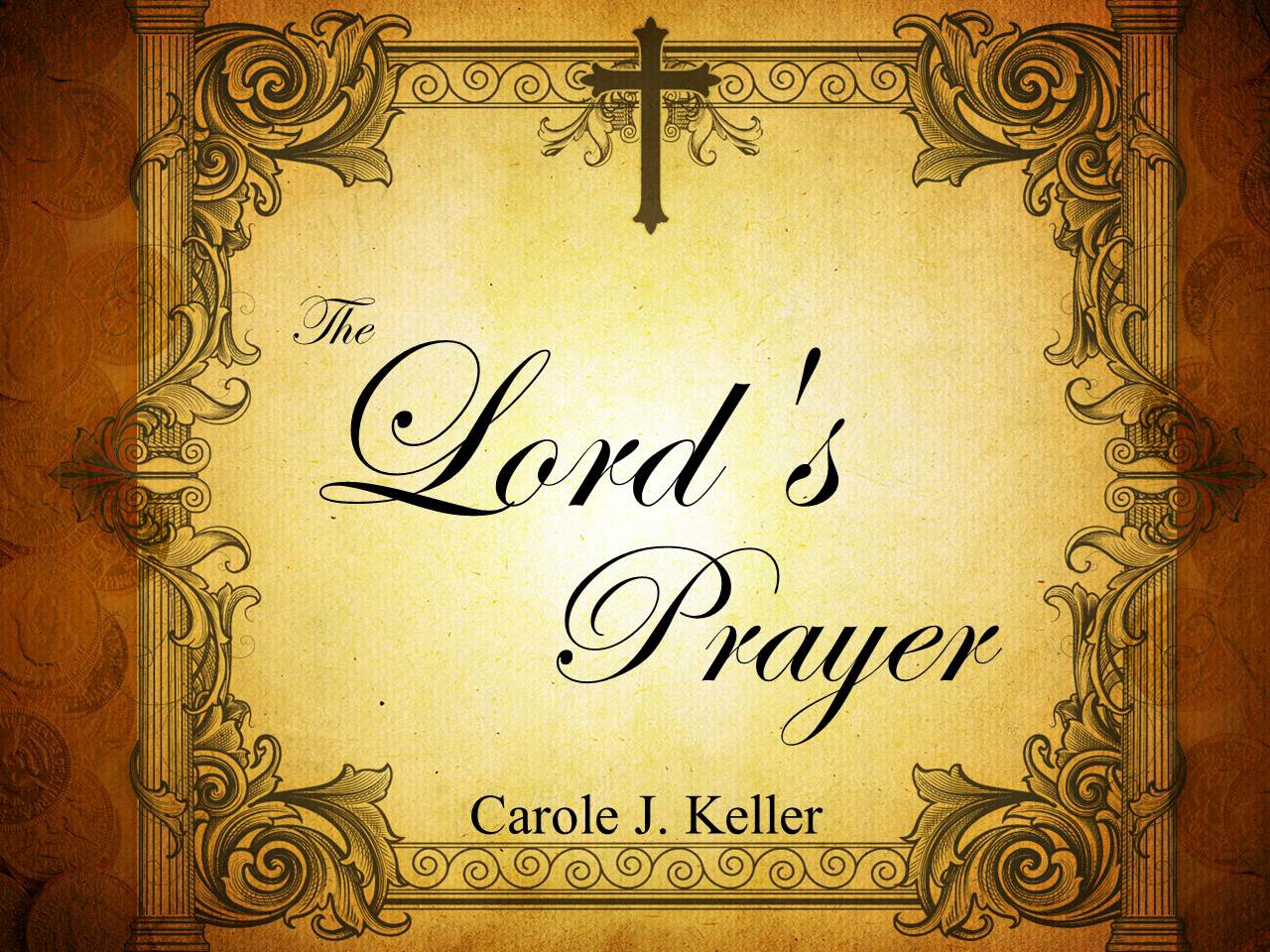Therefore, this principle of praying that God’s will be done speaks to our obedience and doing the things we know are in line with His perfect will. “And whatsoever we ask, we receive of him, because we keep his commandments, and do those things that are pleasing in his sight” (1 John 3:22). What are some of the things we can do to be in right standing with God?

By Carole Keller
To View the Entire Article, Click Here
To Download the Entire Article Directly to Your Computer, Click Here
To View the Outline, Click Here
To View the PowerPoint, Click Here
“Our Father, which art in heaven, Hallowed be thy name. Thy kingdom come. Thy will be done in earth, as it is in heaven. Give us this day our daily bread. And forgive us our debts, as we forgive our debtors. And lead us not into temptation, but deliver us from evil: for thine is the kingdom, and the power, and the glory, forever. Amen.” (Matthew 6:9-13).
God responds to heartfelt and honest communication. Though He knows the proud far off, He actually “respects” the lowly (Psalm 138:6) and is near to the humble and contrite heart (Isaiah 57:15). These principles and disciplines of prayer, incorporating the Lord’s Prayer taught by Jesus (Matthew 6:9-13), methods of spiritual warfare taught by scripture, and other forms of prayer disciplines will change your life. God wants to reveal Himself—but wants us to see and feel after Him so we will find Him “though he be not far from every one of us: for in Him we live and move and have our being” (Acts 17:27-28).
- Hallowed be Thy Name
Jesus taught His followers how to pray by giving them what we all know as the “Lord’s Prayer.” Praise appears both in the introduction and conclusion to the Lord’s Prayer. So we begin by exalting God, acknowledging who He is, praising Him for His acts of power, for His surpassing greatness (Psalm 150:2), and for His faithfulness.
Worship should always precede our requests because God requires an offering. Tucked inside an unrelated thought, God reveals something of Himself “No one may appear before me without an offering” (Exodus 34:20, NLT). In worship, we offer ourselves; it is an act of surrender and love. In worship, God teaches us how to love. To love someone deeply, we surrender our self to him or her out of trust, and we learn that God can be trusted as we remain true to His covenant with us. When we really love someone, we are not afraid to give, not only of ourselves, but also of our time and possessions. Thus, in worship we learn the first step of loving God with all our heart, mind, soul and strength.
When King Hezekiah was being threatened and intimidated by King Sennacherib of Assyria, he went to God in prayer. Before he presented his petition, he acknowledged the power of God over the Assyrian gods of wood and stone, by praying “O Lord God of Israel, enthroned between the cherubim, you alone are God over all the kingdoms of the earth. You have made heaven and earth. Give ear, O Lord, and hear; open your eyes, O Lord, and see; listen to the words Sennacherib has sent to insult the living God…” (2 Kings 19:15-16 N1V). Remember, those who come to God must believe that He exists and is able to perform that which we commit unto Him. King Hezekiah did.
- Thy Kingdom Come
The word “kingdom” means dominion, rule, authority, exercise of power. Jesus told the Pharisees that the kingdom of God was in the midst of them (Luke 17:21); the kingdom of God exists wherever people acknowledge God’s rule and submit to His authority.
To View the Entire Article, Click Here
To Download the Entire Article Directly to Your Computer, Click Here
To View the Outline, Click Here



